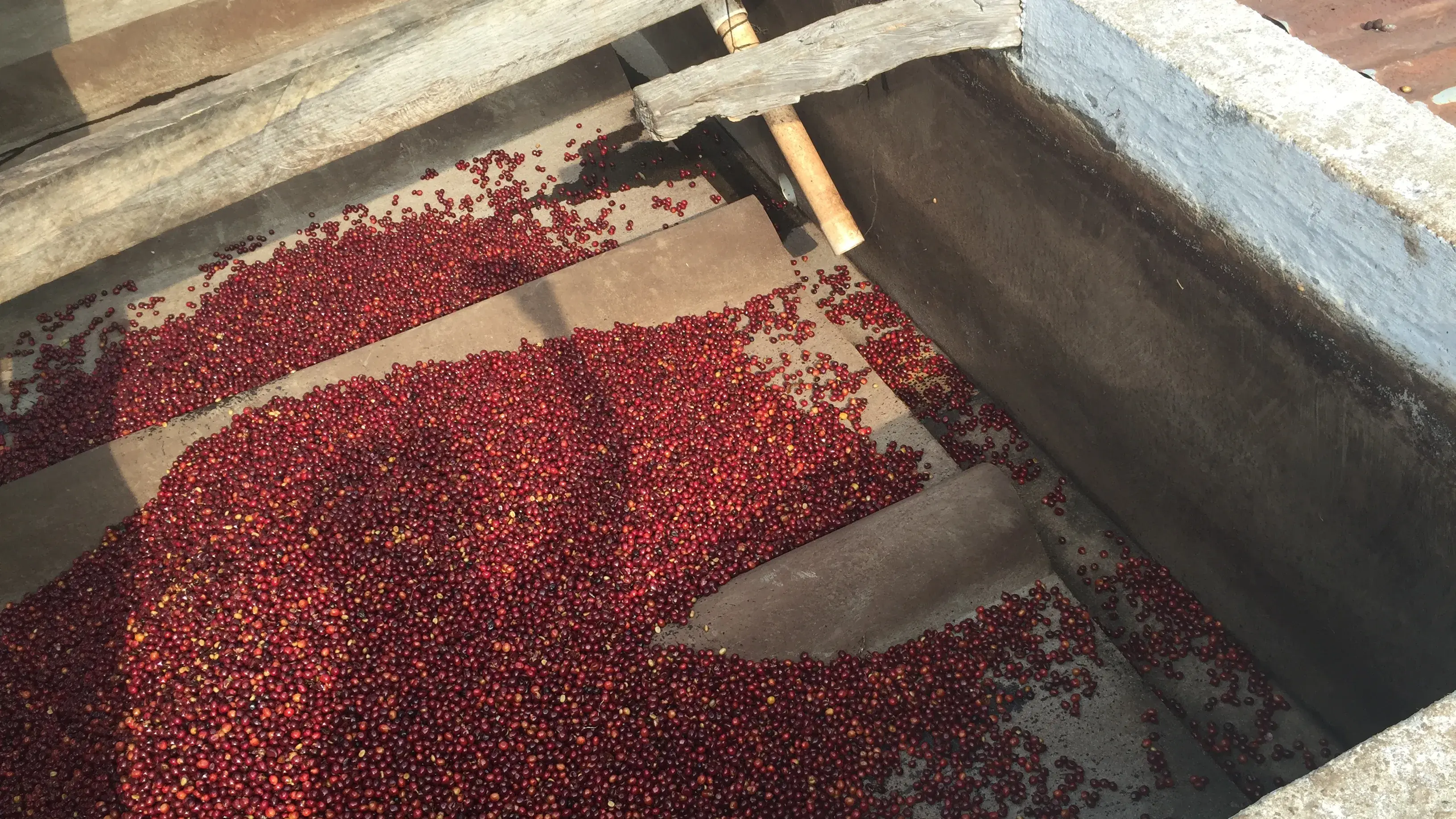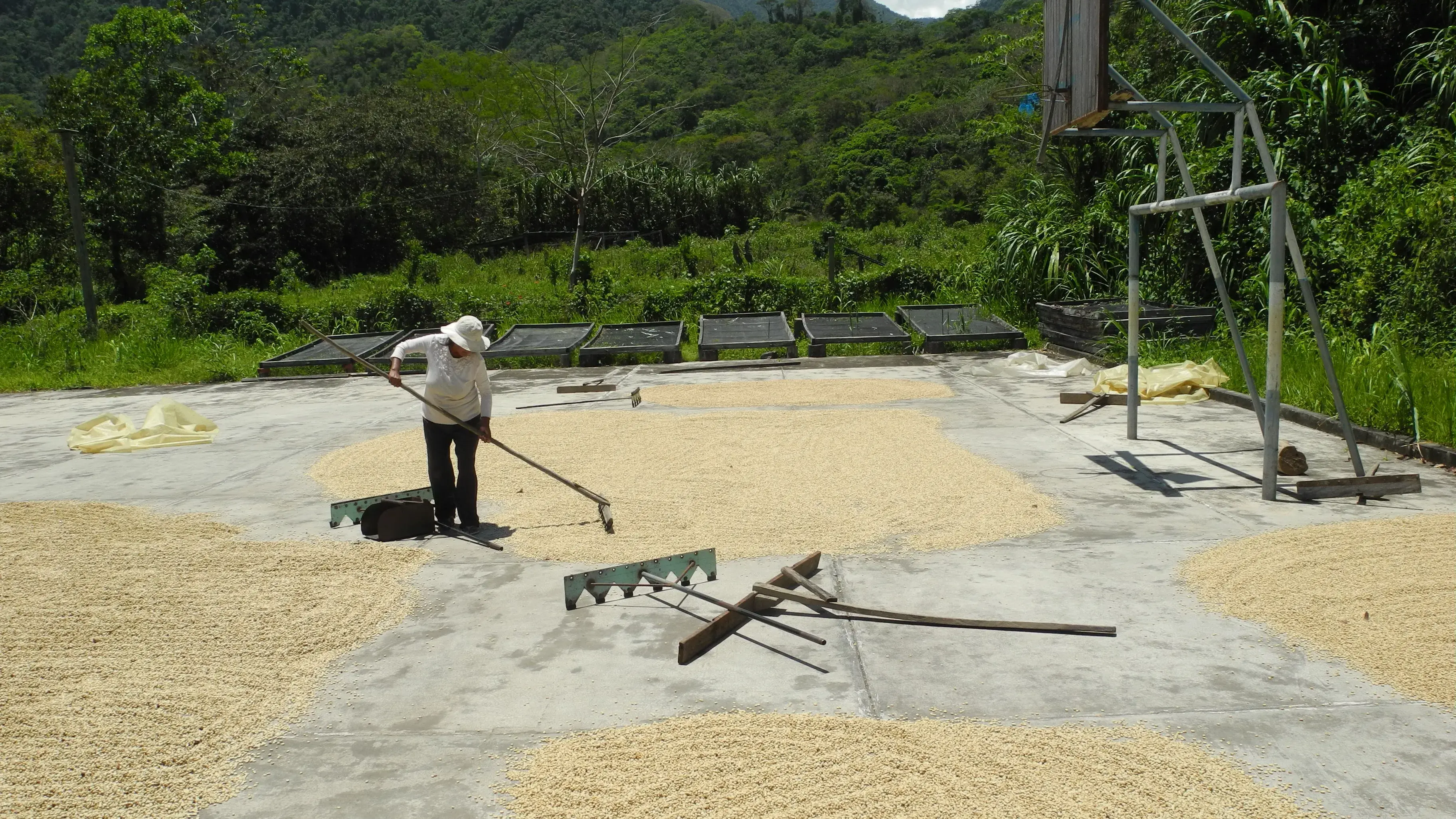Post-harvest Processing in Coffee
ApplyAt a glance
Qualification:
Certificate of attendance
Start:
continuously
Duration:
15-20 hours study time in 4 weeks (online), more details about the implementation
Costs:
CHF 600.00
Comment on costs:
Registration includes link/password to the online learning platform (Moodle), 45 minute webinar incl. Q&A with course instructor, access to a virtual forum to ask your questions to the course instructor and get in touch with other course participants, downloadable material, course confirmation, access to alumni events of the ZHAW Coffee Excellence Center.
Location:
Online
Language of instruction:
English
Further comments:
This continuing education course (WBK) is an excerpt of the graduate certificate programme CAS in Coffee Excellence but can also be attended independently of the CAS. A discount is offered, if participants decide to continue with the full programme.
A continuing education course in coffee (WBK) is a deep dive into a specific coffee topic. With these courses you gain scientific knowledge and insights into latest research results.
Objectives and content
Target audience
This continuing education course is for coffee professionals and ambitious coffee enthusiasts around the world who:
- want to go beyond their coffee skills and acquire a solid scientific foundation in the topic of coffee processing.
- are familiar with coffee processing and want to do a deep dive including chemical and physical processes of the bean.
- are interested in taking the CAS in Coffee Excellence but missed the registration deadline or still need help deciding if the full course is suitable.
- are interested in the following coffee topics: coffee quality, challenges in the coffee value chain, crop yields and seasons, systematic overview of different processing methods and accurate comparisons, processing and fermentation innovation, aroma chemistry, moisture content and water activity, sustainability aspects, a scientific approach to the topic of coffee processing.
Objectives
- Acquire in-depth knowledge on all aspects of coffee processing including its significance for flavour formation and quality.
- Learn in a remote and flexible course format suitable for professionals.
- Develop critical thinking skills to examine various facets of coffee processing.
- Integrate knowledge on coffee processing into a professional context.
Content
- Lesson 1 Introduction
- Lesson 2 Coffee Harvesting
This lesson will explore various coffee harvesting methods, including cherry selection and the “grower’s dilemma” regarding production costs. It will exam harvest seasons in major coffee-producing countries and emphasize the critical timing of the harvest for all participants in the coffee value chain.
- Lesson 3 Wet Mill
The lesson will delve into various processing steps from cherry to dried green beans. It will discuss the three primary processing options at the wet mill and their impact on coffee's sensory attributes. Additionally, it will touch upon the by-products of green coffee processing and highlight the significance of moisture content in coffee storage for food safety. Moreover, the lesson will explore the role of flavor formation during processing, examine various processing methods practiced around the world, and introduce unique concepts such as co-fermented and infused coffees, expanding the understanding of coffee's diverse and dynamic nature.
- Lesson 4 Dry Mill
This lesson will focus on processing green beans in the dry mill after leaving the wet mill. It will detail the stages of cleaning, sorting, and grading green coffee, highlighting different parameters and associated technologies. Additionally, it will cover essential considerations for safe bagging and preparation of coffee for transportation and export.
- Lesson 5 Defects
In this short lesson, we will investigate how we can classify primary and secondary defects in coffee. We will also take closer look at the causes of some of the main defects that can be found in coffee and how to identify them.
Conclusion and Session Quiz
Other courses you may be interested in:
-
Food / Environment / Life…
CAS in Coffee Excellence
CAS (15 ECTS)
Delve into the science of coffee. This online learning course takes you from crop to cup, exploring the scientific…
-
Food / Environment / Life…
Drip and Immersion Coffee Brewing Methods
WBK
Are you interested in unraveling the difference in brewing dynamics of filter versus drip coffee? Do you want to learn…
-
Food / Environment / Life…
Coffee Capsules: Science, Technology, and Innovation
WBK
In this course, you‘ll learn how beans are transformed and packaged into capsules, exploring the processes and…
Methodology
This course is delivered in a self-study format which includes:
- Reading slides, including tutorial and learning videos.
- 45 minute-Webinar with your course instructor Dr. Sebastian Opitz.
- Sources and links for further reading material.
- Mini-Essay and reflective questions, hands-on assignments and session quiz to learn and test your knowledge.
- Personalized feedback and support.
- Online Learning Platform (Moodle) to interact with other participants.
- Interactive discussion forum for questions that will be answered by the expert.
Assessment
Session Quiz (online, Multiple Choice)
More details about the implementation
Course dates and registration deadlines 2024:
- 15 August - 12 September 2024 / Webinar Thursday, 26 September 15.00 – 15.45 pm CET* / Registration deadline on 8 August 2024.
- 12 September - 10 October 2024 / Webinar Thursday, 26 September, 2024 from 15.00 – 15.45 pm CET* / Registration deadline on 5 September 2024.
- 24 October - 24 November 2024 / Webinar Tuesday, 26 November, 2024 from 15.00 – 15.45 pm CET* / Registration deadline on 21 October 2024.
- 14 November - 15 December 2024 / Webinar Tuesday, 26 November, 2024 from 15.00 – 15.45 pm CET* / Registration deadline on 7 November 2024.
- 16 January - 16 February 2025 / Webinar Thursday, 30 January 2025 from 15.00 – 15.45 pm CET* / Registration deadline on 9 January 2025.
* Webinar CET Central European Timezone (Switzerland). If you are unable to attend on the specified date, you may choose to attend on an alternative date from another course. Additionally, the webinar will be recorded and made available for later viewing.
Enquiries and contact
Provider
Institute of Chemistry and Biotechnology
Instructors
- Team of the Coffee Excellence Center ZHAW Wädenswil.
- Expert talks (recorded videos) with: Dr. Mario Fernández, technical director at the SCA and Sasa Sestic from Ona Coffee.
Application
General terms and conditions
General terms and conditions for continuing education courses
| Start | Application deadline | Registration link |
|---|---|---|
| continuously | continuously | New Course dates available soon |



